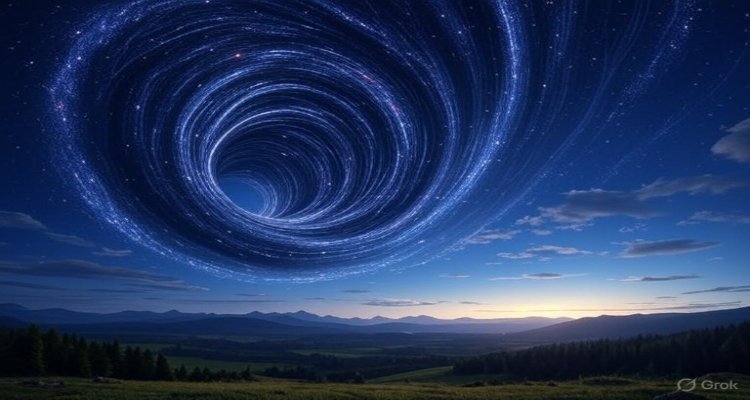Time Travel in Theory: What Science Really Says

What does science actually say about time travel? Dive into theoretical physics, paradoxes, and expert insights to explore if time travel is possible — or just science fiction.
Introduction: The Allure of Time Travel
Imagine stepping into a machine and instantly arriving in the past to witness the construction of the pyramids—or leaping into the future to preview humanity’s destiny. Time travel has captivated human imagination for over a century, from H.G. Wells’ The Time Machine to Hollywood blockbusters like Interstellar and Avengers: Endgame. But beyond fiction, could time travel ever become a scientific reality? Surprisingly, physics doesn’t entirely rule it out.
Context: From Storytelling to Scientific Inquiry
The idea of moving through time has long been a narrative device. Yet it wasn’t until the 20th century that science began to take the idea seriously. Albert Einstein’s theories of special and general relativity revolutionized our understanding of time—not as a constant, but as a dimension that could bend, warp, and stretch.
Einstein’s work led to the concept of time dilation, where time moves slower for objects traveling near the speed of light. Astronauts aboard the International Space Station, for example, age a tiny bit slower than people on Earth—a real, measurable form of time travel into the future.
But what about traveling to the past? That’s where science faces paradoxes and possibilities that remain unsolved.
Main Developments: The Physics Behind Time Travel
Wormholes and Einstein-Rosen Bridges
A major theoretical avenue for time travel is the wormhole—a tunnel-like shortcut through space-time. The idea, rooted in Einstein’s equations and advanced by physicists like Kip Thorne, posits that if one end of a wormhole experiences time differently than the other, it might allow backward or forward travel in time.
However, these wormholes would require exotic matter—substances with negative energy density—not yet proven to exist. Even if they do, stabilizing a wormhole would be incredibly complex.
Closed Timelike Curves (CTCs)
Another theoretical model is the Closed Timelike Curve—a solution in general relativity where an object could theoretically loop back in time. Proposed in models like the Gödel metric and traversable wormholes, CTCs are intriguing but face a major obstacle: the grandfather paradox. If someone travels back in time and prevents their own birth, how could they have existed to time travel in the first place?
To resolve such paradoxes, some physicists propose the Novikov self-consistency principle, which argues that events in time are self-consistent—meaning you can’t change the past, only fulfill it.
Expert Insight: What Scientists Say
Dr. Sean Carroll, a theoretical physicist at Johns Hopkins University, notes:
“Time travel to the future is absolutely allowed by physics, and we’ve observed it. The real question is whether travel to the past can ever escape the paradoxes.”
Similarly, Dr. Kip Thorne, a Nobel laureate who consulted on Interstellar, remains cautiously optimistic:
“While we don’t have the technology or even the theoretical tools to build a time machine, physics doesn’t strictly forbid it—yet.”
Meanwhile, critics like Dr. Paul Davies warn of logical inconsistencies and quantum barriers:
“Time travel into the past likely violates causality—a fundamental principle of physics. If it were possible, we’d have already met time travelers.”
Public Curiosity and Cultural Impact
Public fascination with time travel continues to grow, especially with the rise of science-inspired media. Shows like Dark, Loki, and Doctor Who explore time travel’s emotional and ethical dimensions, while fueling debates online.
On Reddit’s r/AskScience, a popular thread with over 30,000 upvotes tackled the question, “Why haven’t time travelers from the future visited us yet?” Most responses leaned toward either impossibility or strict self-consistency—suggesting time travelers couldn’t alter events.
Impact and Implications: Science, Ethics, and Possibility
While the science remains speculative, time travel theories have implications beyond entertainment. They challenge our understanding of causality, quantum mechanics, and the nature of time itself.
Physicists working on quantum gravity and string theory continue to explore whether time loops or alternate timelines could emerge naturally in our universe. If time travel proves possible—even in limited forms—it could revolutionize everything from computing to communication to our understanding of life and death.
But time travel also raises profound ethical dilemmas. If we could alter the past, who decides what gets changed? What happens to free will? These are not just science questions—they’re philosophical ones.
Conclusion: Between Science and Imagination
Time travel may never resemble the DeLorean-fueled adventures of Back to the Future, but modern physics does allow slivers of possibility—especially into the future. Whether through wormholes, quantum loops, or as-yet-undiscovered physics, time travel remains one of humanity’s most tantalizing “what-ifs.”
Until theory meets technology—or evidence—time travel lives on at the intersection of rigorous science and the endless human drive to understand what lies beyond the now.
Disclaimer:
This article is for informational purposes only and is based on current scientific theories and discussions. No proven method of time travel exists as of this writing.










